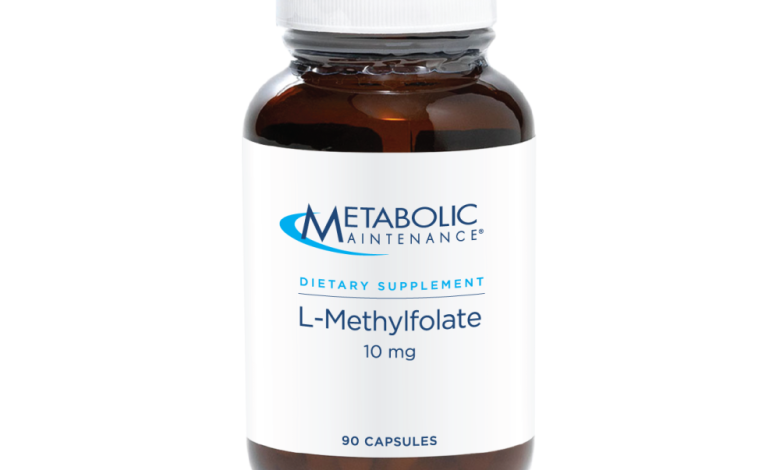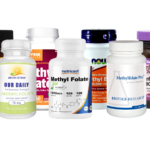How L-methylfolate (LMT) Boosts The Efficacy of Antidepressants – Study

New research suggests that L-methylfolate (LMT), a B vitamin, can be a valuable additional treatment for patients with major depressive disorder (MDD) who do not respond adequately to antidepressants. By analyzing six studies, investigators have found evidence supporting the use of LMT as an adjunct to antidepressant monotherapy for MDD patients with insufficient response. The study also revealed that the treatment response was particularly significant in individuals with obesity and inflammatory biomarkers.
According to Vladimir Maletic, MD, MS, a clinical professor of psychiatry and behavioral science at the University of South Carolina School of Medicine, Greenville, clinicians should consider trying LMT on their patients with treatment-resistant depression. He emphasized that the treatment is particularly robust for patients with high body mass index (BMI) or elevated inflammatory biomarkers. However, even for patients without these indicators, LMT remains a worthwhile consideration due to its safety, good tolerance, and absence of adverse effects.
The study, published online on May 9 in the Journal of Clinical Psychiatry, highlights the potential benefits of L-methylfolate as an adjunctive therapy for MDD patients who are unresponsive to traditional antidepressant treatment.
A significant proportion of patients suffering from major depressive disorder (MDD) do not respond adequately to conventional treatments, as mentioned by the authors. However, previous research has demonstrated the potential benefits of folate (vitamin B9) and other B vitamins in both the pathophysiology and treatment of depression.
Among the various forms of folate, L-methylfolate (LMF) stands out because it differs from dietary folate and synthetic folic acid supplements. LMF is a reduced metabolite that can easily penetrate the blood-brain barrier, making it a direct and efficient route to the brain. This direct access is especially advantageous for individuals with higher body mass index (BMI) or inflammatory indicators, as it enhances the effectiveness of their antidepressant treatment, as explained by Maletic.
LMF is available as a prescription medical food and is approved for the clinical dietary management of patients with MDD. Given the limited response to current antidepressant therapies among certain MDD patients, the authors aimed to investigate the potential role of LMF in addressing this inadequacy and providing an alternative treatment option.
The research on L-methylfolate (LMF) as an adjunctive treatment for major depressive disorder (MDD) involved the analysis of six studies:
- Two multicenter, randomized, double-blind, placebo-controlled sequential parallel trials with patients who had MDD resistant to selective serotonin reuptake inhibitors (SSRIs). One trial had 148 participants, and the other had 75 participants.
- A 12-month open-label extension trial of the two aforementioned randomized controlled trials (RCTs), with 68 participants.
- A retrospective cohort study that assessed 554 patients who had previously been prescribed LMF.
- Two post hoc exploratory analyses of RCT 2, which involved stratifying 74 patients by specific biological and genetic markers to evaluate their effect on treatment outcomes.
The primary endpoints measured improvement using the 17-item Hamilton Depression Rating Scale (HDRS-17) or the Patient Health Questionnaire (PHQ-9).
The trials treated patients with either 7.5 mg or 15 mg of LMF. The results indicated that the 15 mg/day dose of LMF showed significantly better outcomes than the 7.5 mg dose or placebo. The 12-month open extension trial demonstrated that patients who responded well to shorter-term LMF treatment maintained their response over the subsequent year. Additionally, patients who did not adequately respond within the first 8 weeks of therapy benefited from longer-term LMF treatments.
The prospective observational study, reflecting real-world practice, showed promising results, suggesting that LMF’s efficacy extended to patients in everyday clinical settings.
The post-hoc analyses explored the differences in LMF response based on biomarkers, body mass index (BMI), and genotype. Patients with BMI ≥ 30 had a significant reduction in depressive symptoms with LMF treatment, while those with BMI < 30 did not show a significant change. Higher levels of inflammatory markers were associated with a greater treatment effect, even after adjusting for BMI.
The mechanism behind LMF’s effectiveness in augmenting antidepressant treatment is linked to its role in promoting the synthesis of key monoamine neurotransmitters (serotonin, norepinephrine, and dopamine) associated with MDD. LMF provides a “salvage pathway” that may prevent the depletion of these neurotransmitters caused by inflammation, especially in patients with obesity.
Dr. David Mischoulon, who was not involved in the study, commented that the findings were compelling, and LMF appears to be a safe and valuable addition to the treatment options for depression, especially for patients who do not respond adequately to standard antidepressants.
Overall, LMF shows promise as an adjunctive therapy for MDD, particularly for individuals with higher BMI or inflammatory indicators, and it has a favorable safety profile with minimal side effects. However, it’s important to exercise caution when interpreting the results, as the number of studies reviewed was relatively limited.
The research on L-methylfolate (LMF) as an adjunctive treatment for major depressive disorder (MDD) was funded by Alfasigma USA. The authors of the study did not receive direct payment for their participation. However, Dr. Vladimir Maletic, one of the study investigators, has received writing support from Alfasigma USA and has disclosed consulting/advisory fees and honoraria for lectures from various pharmaceutical companies, including AbbVie/Allergan, Acadia, Alkermes, Eisai-Purdue, Intra-Cellular Therapies, Janssen, Lundbeck A/S, Jazz, Noven, Otsuka America, Sage, Sunovion, Supernus, and Takeda.
Dr. David Mischoulon, who commented on the study for Medscape Medical News, has received research support from Nordic Naturals and Heckel Medizintechnik GmbH. He has also received honoraria for speaking engagements from the Massachusetts General Hospital Psychiatry Academy, PeerPoint Medical Education Institute, LLC, and Harvard blog. Additionally, he is associated with the MGH Clinical Trials Network and Institute, which has received research funding from multiple pharmaceutical companies and the National Institute of Mental Health (NIMH).
The full text of the study was published online on May 9, 2023, in the Journal of Clinical Psychiatry.





